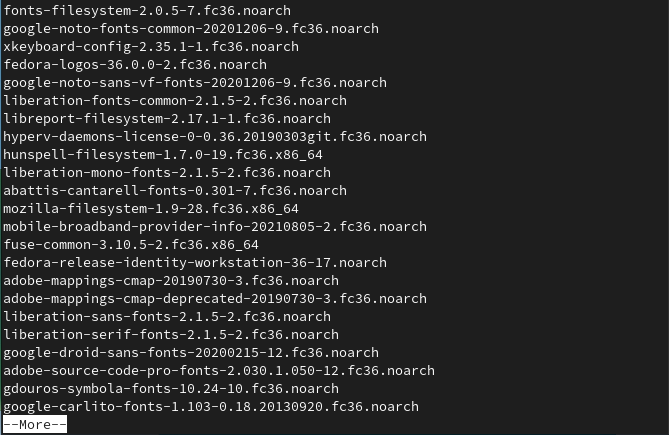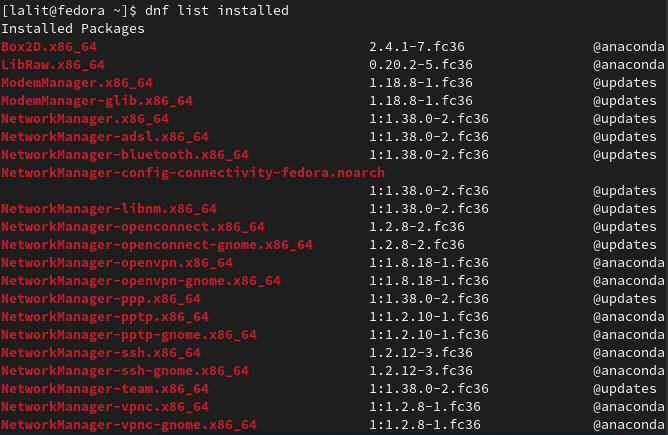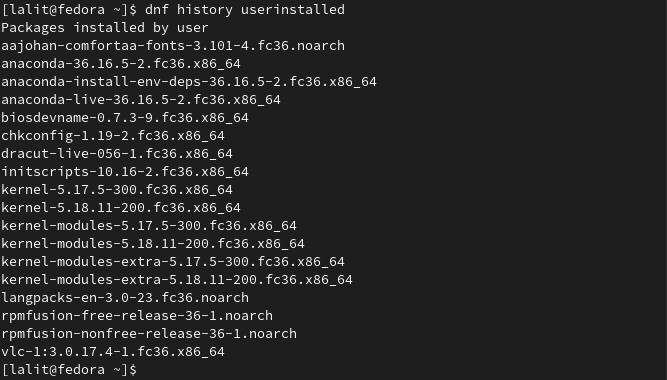The system administrators perform various things to make a system up and running one of them is to analyze install and remove packages from a system. Sometimes you may need to display the list of the packages that are currently installed on your system.
I have already discussed how to display the list of installed packages on a Debian-based Linux distribution.
Today in this article I will discuss the commands to list the installed packages on a Fedora system. At the end of this, you will also be able to check whether a specific package is installed or not.
List all the packages
To display the list of packages in Fedora you can use dnf or rpm commands. Open your terminal and use the given command to display the list of all packages installed on your Fedora system –
rpm -qaYou can combine the above command with more or less to make the output readable on your screen.
rpm -qa | more
In the newer versions of Fedora Linux, you can use the dnf package manager to display all the packages installed on your system. Now use the given command to display the list of all packages installed by using the dnf command –
dnf list installed
List the packages installed by the user
You can check the user-installed packages on your Fedora system by using the given command –
dnf history userinstalledThis will display the output as given in the image below.

Check if a specific package is installed or not
By using the given command in your terminal you can check whether a specific package is installed on your Fedora system or not.
dnf list installed | grep vlcHere packages name vlc is installed on my system so the above command will display –

Display the list of orphaned packages
Orphaned packages are those that are no longer required by the system. You can display the list of orphaned packages by using –
rpmorphan
If the above command is not installed then first install it by using the given command-
sudo dnf -y install rpmorphanYou can clean orphaned packages by using –
sudo dnf autoremoveConclusion
We hope now you can display the list of packages installed on a Fedora system. Now if you have a query or feedback then write us in the comments below.